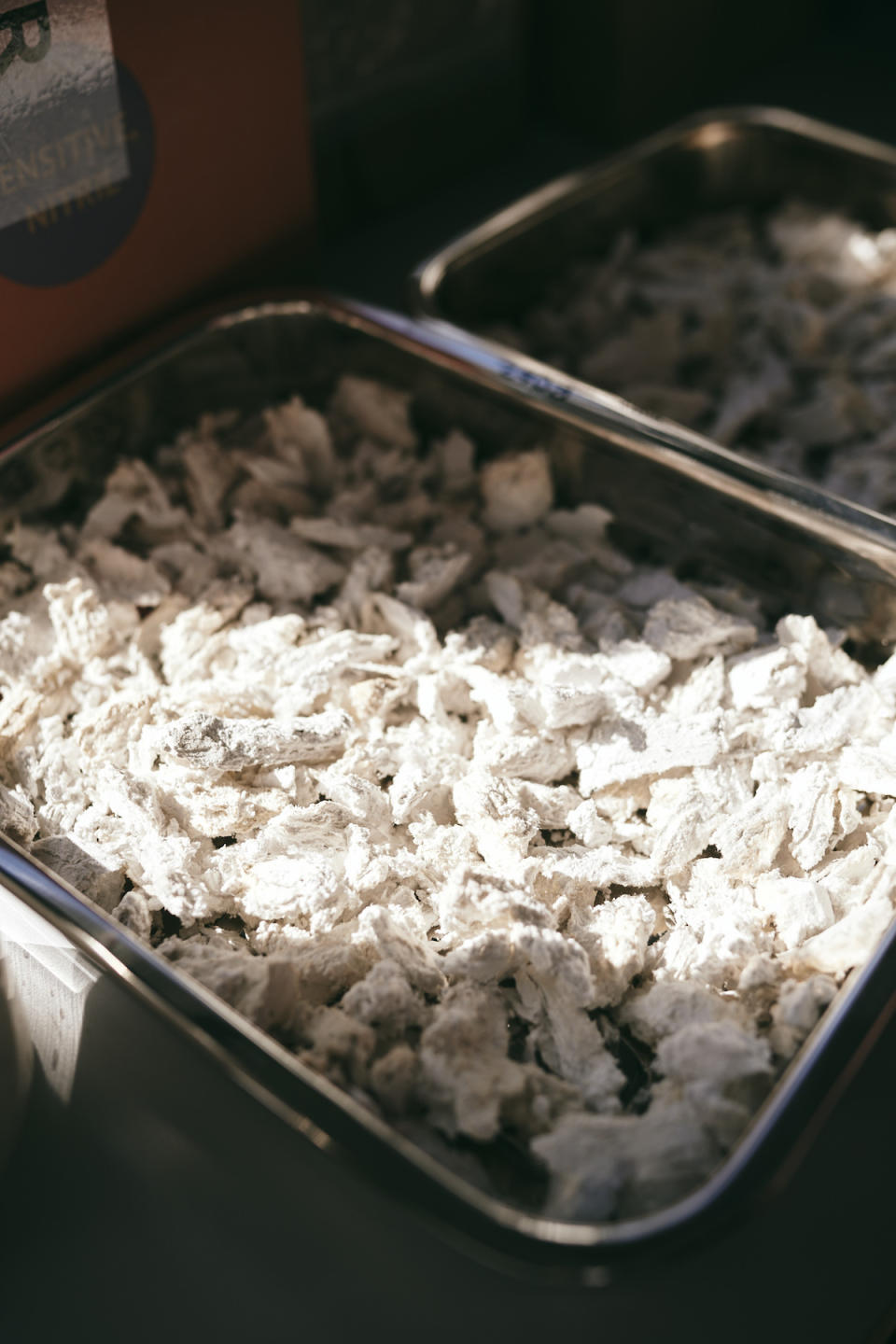Germany’s Eeden Tackles Chemical Recycling for Cotton-PET Fiber Blends

German startups are making the circular economy core to their business. No other nation in the European Union has a higher number with a regenerative business model, according to a March study by Circular Republic, a nonprofit that matches these nascent firms with relevant partners to create scalable, investable circular economy solutions.
Founded early this year by UnternehmerTUM, Circular Republic helps young companies nurture their planet-minded innovations into concrete business models. The initiative, started with founding partner BMW, first set its sights on transforming the textile industry, considering that though numerous partial solutions exist—think recycling technologies—there’s a lack of cross-industry solutions. An affiliate of the Technical University in Munich, UnternehmerTUM is one of Europe’s largest entrepreneurship centers, serving as an innovation and business creation hub in Germany.
More from Sourcing Journal
Stella McCartney's Parka From Plastic-Eating Enzymes Makes Debut
Birla Cellulose Dissects the Challenges of Recycled Textile Sourcing
“The circular economy will be the key to solving the climate crisis and, at the same time, the driving force for innovation and prosperity in Europe,” said Dr. Matthias Ballweg, co-founder and director of Circular Republic. “The large number of startups dealing with the topic of [the] circular economy—we have identified almost 400 of them in Germany alone—is another indicator that this is where the future lies.”
Since its launch, Circular Republic has supported nearly 300 startups, including approximately 50 with venture capital support, according to Carl Warkentin, the nonprofit’s co-initiator.
“So that these means highly scalable startups that leave our ecosystem have two and half billion euros [$2.16 billion] go into the startups every single year, so quite significant,” he said.
The organization started with batteries before tackling textiles, starting with five pilot projects. Circular Republic looks at the industry’s entire value chain and unites players through what it calls a multi-stakeholder project, bringing together brands, retailers, collectors, sorters, recyclers, technology and software developers to forge circular initiatives in the “business model of the future,” according to Warkentin.
Eeden was one of those pilots.

Based in Münster, Germany, Eeden is developing an upcycling technology to reuse spent textiles that would otherwise be landfilled or incinerated, with the goal of enabling fashion companies to offer circular garments with as-good-as-virgin quality.
Reiner Mantsch, co-founder and technology lead, got the idea to launch Eeden while stuying textile technology at the Niederrhein University of Applied Sciences in Krefeld, Germany. But what started as a student project at the Hochschule Niederrhein, known for its textile department, has garnered significant attention just four years in.
According to Steffen Gerlach, co-founder and business lead of Eeden, Reiner wondered why so many chemical recycling companies could only recover one kind of material, which seemed akin to greenwashing.
That’s why Eeden is tackling cotton-PET blends with its chemical recycling technology. The startup closed seven-figure seed funding rounds in June and November 2022. Investors who participated include TechVision Fund, a regional fund that invests in technology startups; High-Tech Gründerfonds, a German tech venture capitalist firm; Born2Grow, a future fund for tech and climate tech, and an ex-manager from a packaging angel investor.
“We see Eeden’s technology as a great opportunity for the industry and major fashion brands to become independent of scarce natural resources, while solving the global used textile problem and already meeting future EU directives,” Andrea Muth, investment manager at Born2Grow, said. “Already today we see a great potential beyond the demand of the fashion industry.”
In October, Eeden won the Sustainable Impact Award from WirtschaftsWoche, a notable German business magazine. Last month, the startup received a 500,000-euro ($542,000) research budget from the German government.
“The Sustainable Impact Award 2023 was a great event for us to celebrate Eeden’s work for a more resource-efficient textile industry,” Julian Hertrampf, marketing and PR for Eeden, said. “We really enjoyed the evening, made exciting contacts and can recommend participation to all impact startups.”
Unlike some other chemical recyclers which can only salvage one fiber from blended fabrics such as cotton-PET mashups, Eeden has found a way to effectively separate cotton from the PET so that both can be spun into like-new fibers. Eeden is not only developing a solution for over 70 percent of the EU’s used textiles but also an opportunity for fashion companies to offer recycled clothing that holds up to quality standards.
Eeden prioritizes green chemistry. It extracts the biopolymer cellulose from cotton-rich textile waste and breaks down polyester into basic building blocks. Industrial partners then process these materials into lyocell, viscose and polyester. From there, brands can create high-quality jeans, shirts and other garments from these fabrics.

Eeden claims its technology is more environmentally friendly and cost-efficient than other recycling methods. Chemical recycling uses significantly less water, needs no arable land, avoids pesticides and utilizes textile waste as a resource. It also consumes fewer chemicals and minimizes by-products such as salt. Eeden made a point of creating technology that partners can easily integrate into their current manufacturing setup.
“There’s definitely the opportunity [for plug-and-play] so we’re not engineering totally new machinery; we don’t want to create new process technology, we want to use technology so that some of the strategically fitting companies—like the fiber, chemical or paper industries—are able to use [our] technology in a licensing model,” Gerlach said, noting the need to “prove unit economics” and reach industrial scale.
Next year Eeden plans to close a Series A, build a pilot plant, launch a prototype textile, and collaborate with textile collectors, fiber spinners, and fashion brands to gather insights for the industry. The long-term roadmap includes setting up facilities around the world, tailored to the needs of each market.
“That’s another advantage of our technology,” Gerlach said, adding, “we can adjust to the different fiber proportions that will be seen in [global] markets.”

